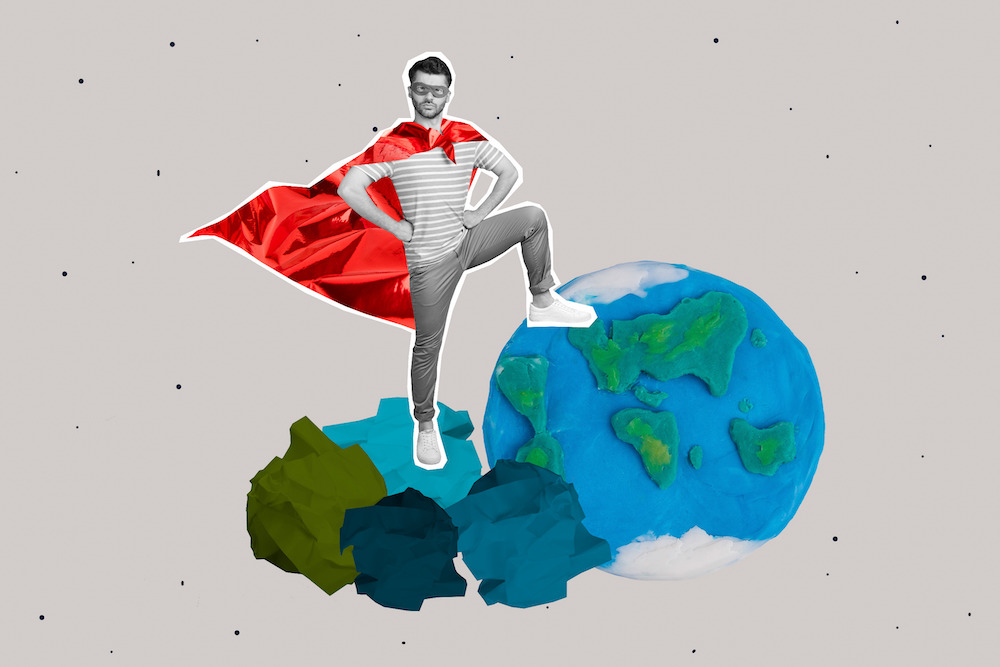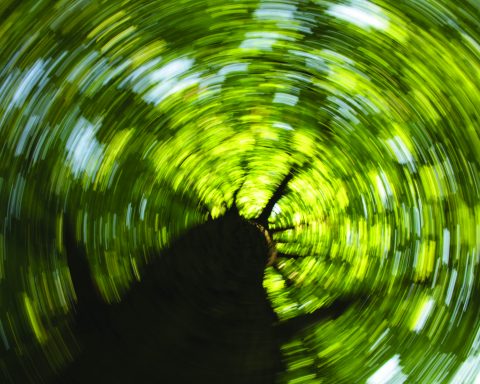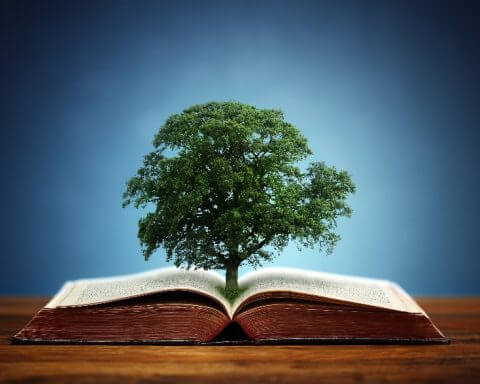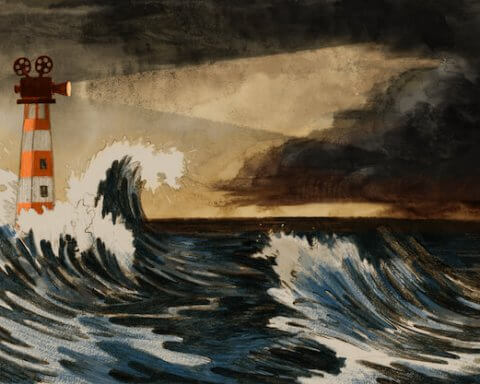It’s hard to laugh about Trump anymore. Electing a climate denier (again) to lead the most powerful nation on Earth at a time when the climate crisis is rapidly transitioning to its global catastrophe phase – well, it doesn’t feel very amusing. But in a moment when defeat is the pervasive mood in the climate movement, the front lines of climate action are starting to look a lot . . . funnier?
Call it the John Oliver effect. The last few years have seen a surge in satirical web series with their targets set squarely on bad actors in government and the fossil fuel sector. Foremost among them is Climate Town, a YouTube channel run by comedian Rollie Williams, whose long-form takedowns of oil and gas disinformation are deeply researched and addictively hilarious for his nearly 600,000 subscribers.
Williams may be the current reigning king of climate comedy, but his court of jesters is growing rapidly, thanks in part to private donors, non-profits and family foundations using their resources to support comics making jokes about climate change. In October, the Center for Media & Social Impact received US$1 million in new donor funding for its humour programs, including the Climate Comedy Cohort, a nine-month fellowship that puts together comedians with climate scientists.
It’s an auspicious pairing. The U.K.-based series Climate Science Translated garnered nine million views on X alone, by having well-known comedians function as interpreters for researchers. “Climate science is complicated, so we’re translating it into human,” the series claims. When University College London climate scientist Bill McGuire says that there are up to 1.4 trillion tons of methane that could be released from permafrost in Siberia, Welsh comedian Kiri Pritchard-McLean explains, “Evil gases literally exploding out of the ground in Siberia: I’m no David Attenborough, but that shit’s not right, is it?”
Adam McKay is another big name in the climate comedy space. The creator of Don’t Look Up and other blockbuster Hollywood comedies has received philanthropic funding to launch Yellow Dot Studios, a media non-profit that uses comedy, parody and striking visual edits “to raise awareness and mobilize action on the climate emergency.” His collaborators include the SNL alumnus Tim Robinson, the chaotic comedian behind I Think You Should Leave, and Rainn Wilson, who played Dwight in The Office.
But can climate change really be funny? You’d be forgiven for doubting. Here’s the peak of punchlines that you can find on the internet: “Why don’t people take climate change seriously? It’d be a lot cooler if they did.”
We can do without climate jokes, but climate humour is something we really do need, if only to make sense of the jargon, wonkery and greenwashing that permeates the space. “It’s easier to engage when you are laughing,” says Aaron Hagey-MacKay, a comedian and creator of The Goose Media in Canada. “There is some joy to doing comedy in this regard because it’s such a heavy and boring subject. What a boring apocalypse this is! It’s death by graphs.”
Hagey-MacKay creates sarcastic explainers on topics like Canada’s carbon tax, and he’s found plenty of traction online for his climate-focused satire. The Goose currently has more than 11,000 followers on TikTok, and last year he received funding from Montreal’s Trottier Family Foundation – by way of the Small Change Fund – to continue his work. “I won’t lie, it was a bit of a bet,” acknowledges Jean-Patrick Toussaint, senior director of Trottier’s climate program, which generally funds traditional climate action, such as clean energy development. But Toussaint says that with its Comedy for Climate project, the foundation wanted to support efforts to reach an audience the environmental sector as a whole has not traditionally tapped into.
Apart from The Goose, Trottier is funding Lil D’Bunk, a YouTube series that features child actors debunking greenwashing myths like “natural gas”; The Big Oil Alliance, an award-winning series by Artists for Real Climate Action that sends up climate commitments by fossil fuel industry associations; the Webby Award–winning Hot Globe show; and an upcoming series by Sean Devlin, the comedian who created Shit Harper Did, called The Weird Weather Report.
As John Oliver’s brand of blistering and surprisingly informative mockery demonstrates, satire can be a more effective tool for communication. “No one wants to hear about climate right now,” Hagey-MacKay admits. “With creeping fascism, war and affordability issues more top of mind, it’s not even registering.” He’s learned to couch his climate communications in more immediate concerns, he says, like the affordability crisis. “The good news is that climate touches everything, so you can always find a connection point.”







